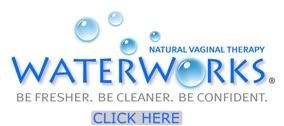Oops! The Condom Broke! What Now?
Recently, reader Violet wrote in: "I’m so frustrated. Recently my partner and I were having sex. Afterwards we realized that the condom had a hole in it. I was upset for 2 weeks until my cycle came. I have never done well on birth control because it makes my hormone symptoms worse, not better. I have friends that can take the pills and do great. What are my options? I want babies someday, but I’m tired of being scared and worried over a defective, broken condom."
Wow, I am sorry that you have had to struggle and have so much trouble with this. Truthfully, condoms, when used every time you have sex, are one of the most effective forms of birth control. But sometimes there are defects or areas of thinning that happen during manufacturing and those weak spots can rupture during sex.
There is a saying: "As long as you have a uterus and one ovary there is no contraception method that will be 100% effective". Pregnancies and babies happen, even with the most careful methods of contraception. Many women have trouble with hormonal contraceptives, just like you Violet, and prefer non-hormonal options. The hormonal forms of contraception work well if used in women with irregular cycles, heavy bleeding and other types of menstrual irregularities.
Condoms are one of the most effective forms of Birth Control (BC). Lubricants that are not water based (like oils and lotions) can weaken a condom and cause them to rupture even if they are not defective. Spermicidal gel can be used together with condoms to further help prevent pregnancy.
The good news is that there are some forms of Emergency Contraception (EC) that can be used in times of unprotected sex or in the event of a broken condom. IUDs have been used for a long time and can be placed up to 120 hours or (5 days) after unprotected sex. However, IUDs are only useful in women seeking long term contraception. IUDs have to be placed by your OB/GYN or other trained professional, and can be expensive if not covered by insurance.
Currently, the most common form of EC used in the U.S. is a progestin called levonorgestrel. Levonorgestrel can be used 72 hours or 3 days after unprotected sex. It is given in a single dose of 1.5 mg. Similar to this is the Plan B One Step or the Next Choice that can be purchased without a prescription by those over age 17 years. They are single dose progesterone tablets and can be used 72 hours (3 days) after unprotected sex. Recently the FDA approved the morning after pill (ulipristal) which can be taken up to 5 days after unprotected sex (2 more days than the above pills). In any case both types work by delaying ovulation or stopping ovulation, which allows the sperm to die before and egg is available for fertilization. It is best to take them as soon as possible before fertilization happens, because neither pill will disrupt or harm a pregnancy that has already started.
This is good news to most women as they often obtain wrong information that these pills work by causing an abortion of the fertilized egg. Now you have the right information. This is true of the IUD also, it works by thickening the cervical mucous which prevents sperm from swimming up to the fallopian tube where fertilization takes place. So IUDs prevent fertilization, they do not prevent an embryo from implanting if fertilization has already happened. I have removed many IUDs from women who became pregnant with one in place.
So, Violet, you can continue with the use of condoms without worry knowing you have options. Please write in again if you have any further questions.
Many of my patients and women writing in are reporting that because of WaterWorks, they have not experienced the vaginal odor problems they used to have on a regular basis as a side effect of IUD use. They love using WaterWorks after intercourse to help rinse out semen, which also reduces discharge and vaginal odor after sex. WaterWorks has been FDA cleared for vaginal odor not caused by infection, and has become the most desired way for women to cleanse the vagina daily. The unique design of a medical grade stainless steel nozzle and use of plain tap water have made it the easiest, safest and most natural way to feminine hygiene.



